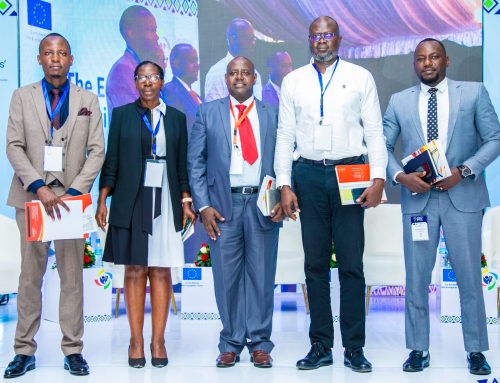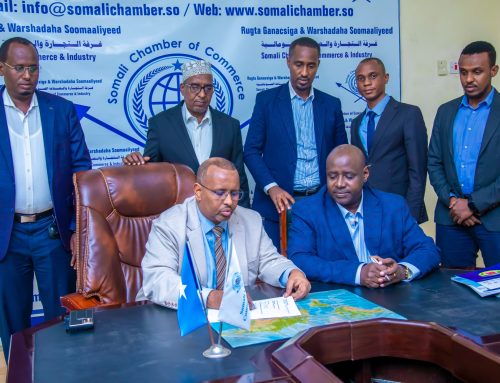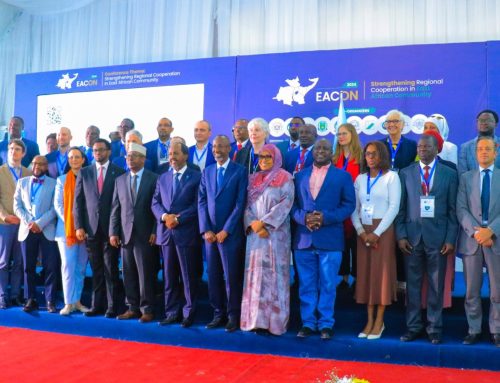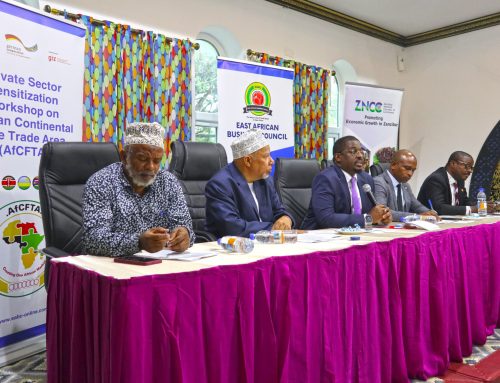Tuesday, 14th June 2022 Nairobi, Kenya: – Fourty three (43) countries out of Fifty Five (55) have ratified the African Continental Free Trade Area (AfCFTA) Agreement. Fourty-five (45) countries have already submitted the schedule of liberalization plus 87 % of Rules of Origin for all products have been agreed upon.
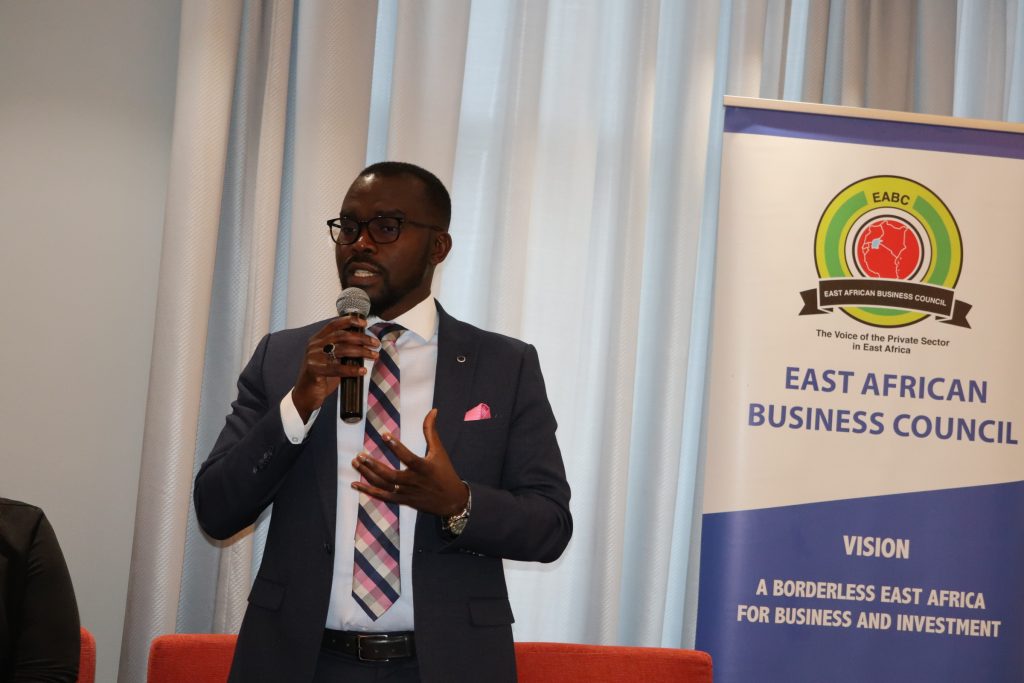
This was revealed by Mr. Prudence Sebahizi, Chief Technical Advisor on the AfCFTA at the African Union Commission during the EABC- TMEA Regional Private Sector Consultative Meeting on the African Continental Free Trade Area (AfCFTA) and Tripartite Free Trade Area (TFTA).
13% of Rules of Origin (RoO) are outstanding for products namely: Textiles, Clothing & Household textile compose 10.5% of the outstanding RoO; Motorvehicle, parts accessories compose 1.4% of the outstanding RoO, Tobacco and manufactured tobacco substitutes and Fish and others composing 1% of the outstanding RoO.
Mr. John Bosco Kalisa, EABC CEO said, “The finalization of RoO negotiation at AfCFTA is important as the outstanding products are central in EAC regional value chains and job creation.”
Mr. Kalisa called for compliance to the agreed-upon protocols and implementation of customs processes such as tariff reductions for trade to materialize under the AfCFTA.
Mr. Kalisa said “AfCFTA should be anchored on strong private sector engagement” He called for trust-building and mindset shift to promote Made in East Africa and Africa products.
Mr. Sebahizi said that intra-Africa trade is at 18% and AfCFTA is set to boost trade to over 70%. The COVID-19 pandemic and war in Ukraine disrupt Africa’s trading patterns and economic growth prospects. Industry leaders have called for import substitution to boost intra-Africa trade. Mr. Kalisa stated that EAC regional value chains should feed seamlessly into the continental value chains.
On her part, Ms. Anataria Uwamariya, Director of Business Competitiveness, TMEA said “Strengthening early monitoring & detection mechanisms and resilience of our economies is important in light of the global disruptions”
She urged EAC countries to tap into competitive and comparative advantages to boost intra- trade. Ms. Anataria Uwamariya said, “Access to market intelligence data is important for businesses to trade under AfCFTA.” She stated that TMEA is promoting public-private partnerships to improve infrastructure connectivity in Africa.
Industry leaders have called for Ministers to quickly finalize the negotiations of the RoO at the AfCFTA level, Strong trade dispute resolution mechanism, Improve infrastructure connectivity, Open skies, Capacity building on AfCFTA policies & opportunities, Publication of AfCFTA e-Tariff books and host the next edition of intra-Africa Trade Fair in East Africa.
EABC- TMEA EAC Private Sector Consultative Meeting on the African Continental Free Trade Area (AfCFTA) and Tripartite Free Trade Area (TFTA) convened over 50 industry leaders and policy experts from private sector associations from Burundi, Kenya, Rwanda, South Sudan, Uganda and Tanzania to get abrest on AfCFTA Rules of Origin, EAC Tariff Offer/Concession and Non-Tariff Measures.
Mr. Kalisa also appreciated Trademark East Africa (TMEA) for their profound partnership and support to EABC under the EABC-TMEA Public-Private Dialogue programme for increased trade and investments in the East African Community (EAC).













